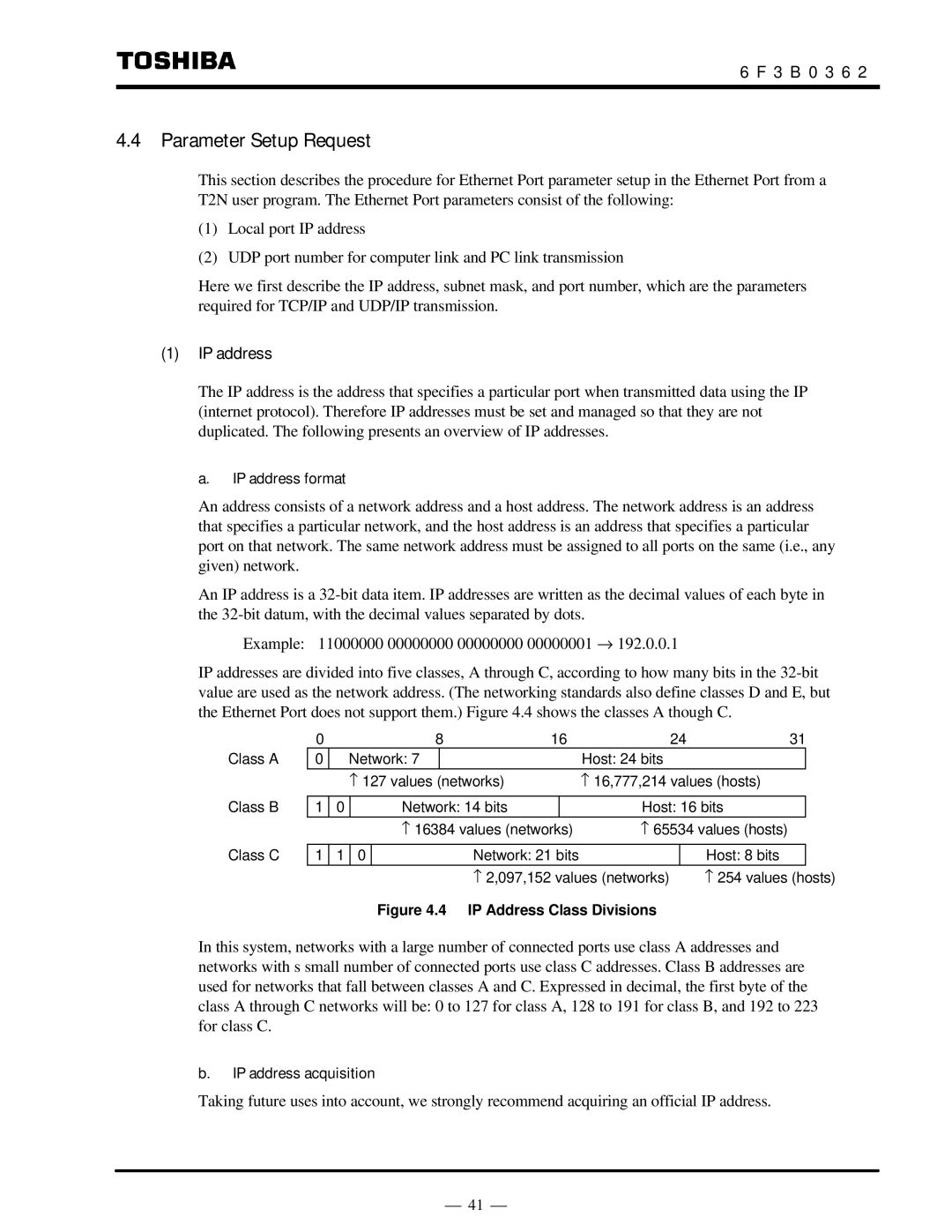
6 F 3 B 0 3 6 2
4.4 Parameter Setup Request
This section describes the procedure for Ethernet Port parameter setup in the Ethernet Port from a T2N user program. The Ethernet Port parameters consist of the following:
(1)Local port IP address
(2)UDP port number for computer link and PC link transmission
Here we first describe the IP address, subnet mask, and port number, which are the parameters required for TCP/IP and UDP/IP transmission.
(1)IP address
The IP address is the address that specifies a particular port when transmitted data using the IP (internet protocol). Therefore IP addresses must be set and managed so that they are not duplicated. The following presents an overview of IP addresses.
a.IP address format
An address consists of a network address and a host address. The network address is an address that specifies a particular network, and the host address is an address that specifies a particular port on that network. The same network address must be assigned to all ports on the same (i.e., any given) network.
An IP address is a
Example: 11000000 00000000 00000000 00000001 → 192.0.0.1
IP addresses are divided into five classes, A through C, according to how many bits in the
| 0 |
| 8 | 16 | 24 | 31 | ||||||
Class A | 0 |
| Network: 7 |
|
|
| Host: 24 bits |
|
| |||
|
|
| − 127 values (networks) | − 16,777,214 values (hosts) | ||||||||
|
|
|
|
|
|
|
|
| ||||
Class B | 1 | 0 |
|
| Network: 14 bits |
| Host: 16 bits |
| ||||
|
|
|
|
| − 16384 values (networks) | − 65534 values (hosts) | ||||||
|
|
|
|
|
|
|
|
|
| |||
Class C | 1 | 1 |
| 0 |
|
| Network: 21 bits |
|
| Host: 8 bits |
| |
|
|
|
|
|
|
| − 2,097,152 values (networks) | − 254 values (hosts) | ||||
Figure 4.4 IP Address Class Divisions
In this system, networks with a large number of connected ports use class A addresses and networks with s small number of connected ports use class C addresses. Class B addresses are used for networks that fall between classes A and C. Expressed in decimal, the first byte of the class A through C networks will be: 0 to 127 for class A, 128 to 191 for class B, and 192 to 223 for class C.
b.IP address acquisition
Taking future uses into account, we strongly recommend acquiring an official IP address.
⎯ 41 ⎯
